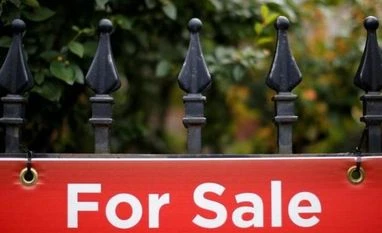US consumer confidence fell in September and home sales dropped to an eight-month low in August due to the impact of Hurricanes Harvey and Irma, supporting the view that the storms would hurt economic growth in the third quarter.
Still, relatively high levels of consumer confidence together with continued strong gains in house prices should support consumer spending and keep the economy on solid ground. Rebuilding in the hurricane-ravaged Texas and Florida also is expected to deliver a boost in the fourth quarter.
"Though hurricane disruptions will make spending uneven geographically over the next few months, we expect consumers to remain a primary driver of US economic growth in 2018," said James Bohnaker, a US economist at IHS Markit in Lexington, Massachusetts.
The Conference Board said on Tuesday its consumer confidence index declined to a reading of 119.8 this month from 120.4 in August, which was the highest reading in five months. It said confidence in Texas and Florida "decreased considerably."
The survey's so-called labour market differential, derived from data about respondents who think jobs are hard to get and those who think jobs are plentiful, slipped to 14.5 this month from 16.0 in August.
That measure, which closely correlates to the unemployment rate in the Labor Department's employment report, still remains consistent with more absorption of labour market slack.
More From This Section
The number of consumers expecting an improvement in their incomes rose marginally to 20.5 per cent in September from 19.9 per cent last month. The share expecting a drop in income was little changed at 8.3 per cent.
Despite being near full employment, the labour market has struggled to generate strong wage growth, frustrating both consumers and policymakers. But rising home prices should continue to underpin consumer spending, even though the housing market is slowing.
The Atlanta Federal Reserve is forecasting the economy to grow at a 2.2 per cent annualised rate in the third quarter, slowing from the April-June period's brisk 3.0 per cent pace.
A second report on Tuesday showed the S&P CoreLogic Case-Shiller composite index of house prices in 20 metropolitan areas rose 5.8 per cent in July on a year-on-year basis after increasing 5.6 per cent in June.
US financial markets were little moved by the data.
The dollar rose to a one-month high against the euro as investors worried that months of talks to form a coalition government in Germany could hurt the country's economy and make closer eurozone integration difficult. Stocks on Wall Street were little changed, while prices for US Treasuries fell.
HOUSING SLOWING
In a third report on Tuesday, the Commerce Department said new home sales decreased 3.4 per cent to a seasonally adjusted annual rate of 560,000 units last month, which was the lowest level since December 2016. Sales were down 1.2 per cent on a year-on-year basis in August.
New home sales, which are drawn from permits, account for 9.5 per cent of overall home sales. The Commerce Department suggested Harvey and Irma likely impacted new home sales data last month.
It said "information on the sales status at the end of August was collected for only 65 per cent of cases in Texas and Florida counties" affected by the hurricanes. That compared to a normal response rate of 95 per cent.
Harvey weighed on retail sales and industrial production in August.
Last month, new home sales fell 4.7 per cent in the South, which accounts for more than 50 per cent of the new homes market. Harvey hurt sales of previously owned homes in August and held back the completion of houses under construction.
With Irma slamming Florida in September, housing market activity could remain weak. The areas in Texas and Florida affected by the storms accounted for 14 per cent of single-family home permits in 2016.
The housing market was softening even before the hurricanes struck, buffeted by headwinds including shortages of homes available for sale, skilled labour and suitable land for building. Rising prices for building materials are also undercutting the market.
In August, new single-family homes sales also fell in the Northeast and West. They were unchanged in the Midwest.
"The US housing market entered a strange kind of twilight zone over the summer, in which home prices kept rising steadily, but actual home sales activity largely leveled off at fairly underwhelming levels," said Svenja Gudell, chief economist at Zillow.
)